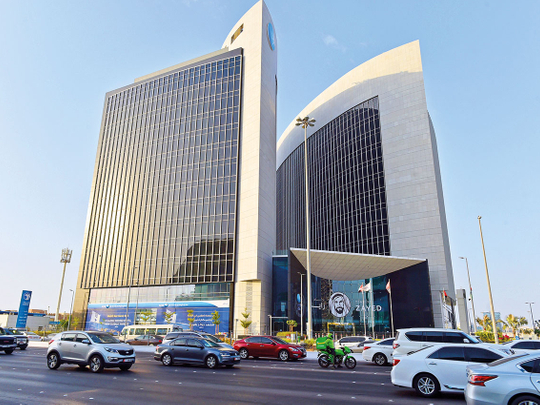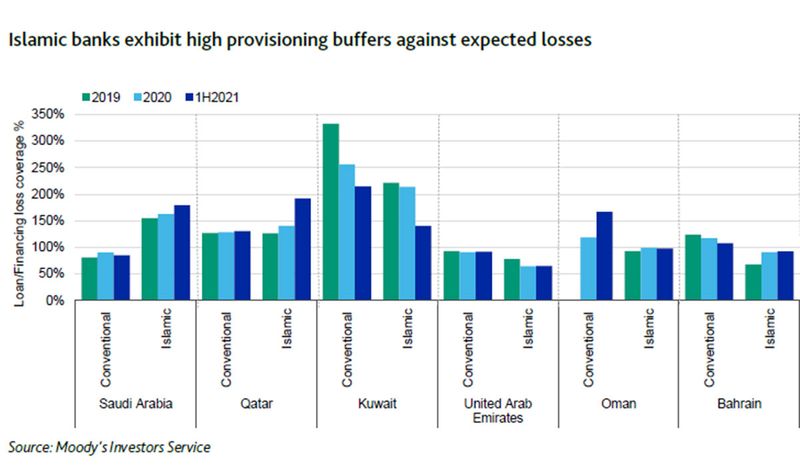
Dubai: GCC Islamic banks’ focus on low-risk retail finance supports their asset quality and are far more resilient to the impact of pandemic, according to rating agency Moody’s. Islamic banks while emerging from the coronavirus-induced economic shocks remain exposed to an uneven recovery.
“Regulatory forbearance has masked the deterioration in banks’ loan books, and high provisioning costs will continue to weigh on profitability - but their capital and liquidity buffers should comfortably absorb unexpected losses,” said Badis Shubailat, analyst at Moody’s.
Moody's sees operating conditions in the GCC as recovering, but downside risks remain. Fiscal and monetary stimulus, vaccine rollouts and a relaxation of pandemic-related restrictions are fuelling an economic recovery across the main Islamic banking markets.
“The GCC countries, as major hydrocarbon producers, and Malaysia, to a lesser extent, will also benefit from a rebound in oil prices," he added. "However, the recovery is uneven amid the emergence of new coronavirus variants that could trigger fresh restrictions.”

Asset quality
Moody’s expects Islamic banks’ retail focus to help preserve their asset quality. The onperforming exposures have remained stable thanks to payment moratoriums, and will likely increase when forbearance is lifted. However, Islamic banks have a sizeable focus on low-risk retail finance, which will help protect their asset quality. The sector has also built up its loss reserves to prepare for the withdrawal of support measures.
Margin pressures
The rating agency expects Islamic banks to face continued margin pressure from low interest (profit) rates and high provisions. “Return on assets are expected to remain below pre-pandemic levels on average this year because of low interest rates, a still-subdued operating environment, and high provisioning costs," said Shubailat. "Strong demand for Islamic finance, which is growing faster than conventional banking, will partially offset these strains/”
Strong capital
Islamic banks’ regulatory capital remains well above minimum requirements. Their liquidity is also strong, reflecting deposit growth as customers cut spending amid economic uncertainty. Central banks have relaxed reserve requirements and continue to provide banks with liquidity support.
Consolidation chances
“We expect more Islamic banks to pursue mergers, particularly smaller players crowded out by large competitors," the analyst said. "In the GCC region, Islamic banks have in some cases merged with conventional peers. In Indonesia, the government merged its state-owned Islamic banks in 2020 to help them compete with larger conventional banks.”








